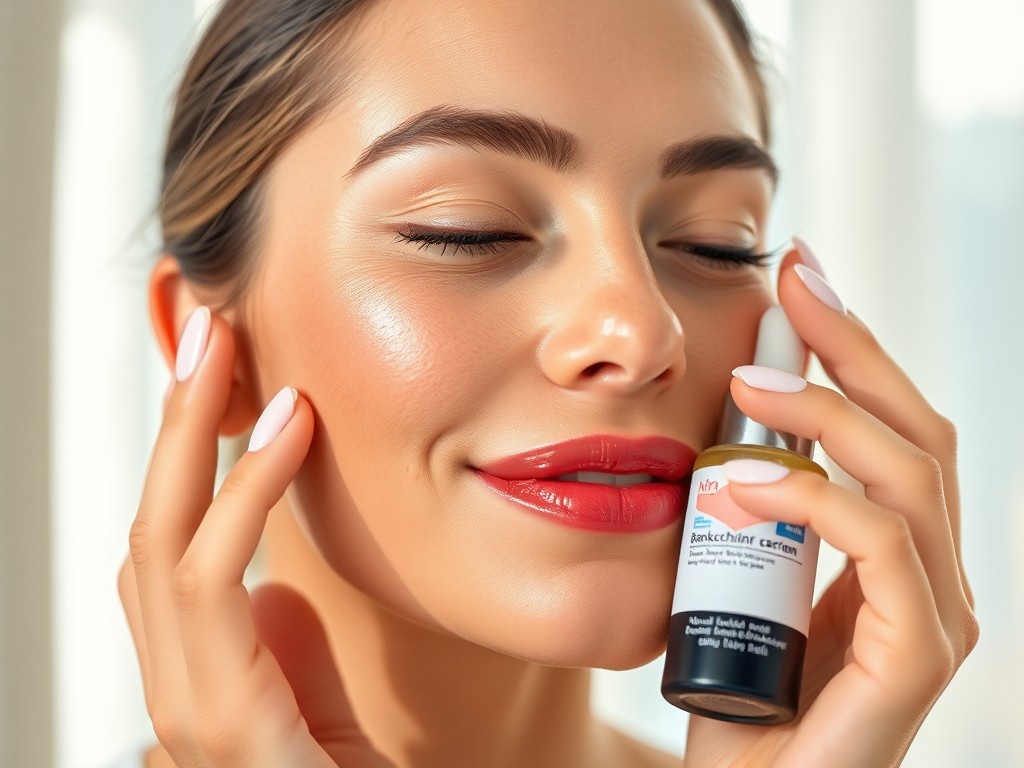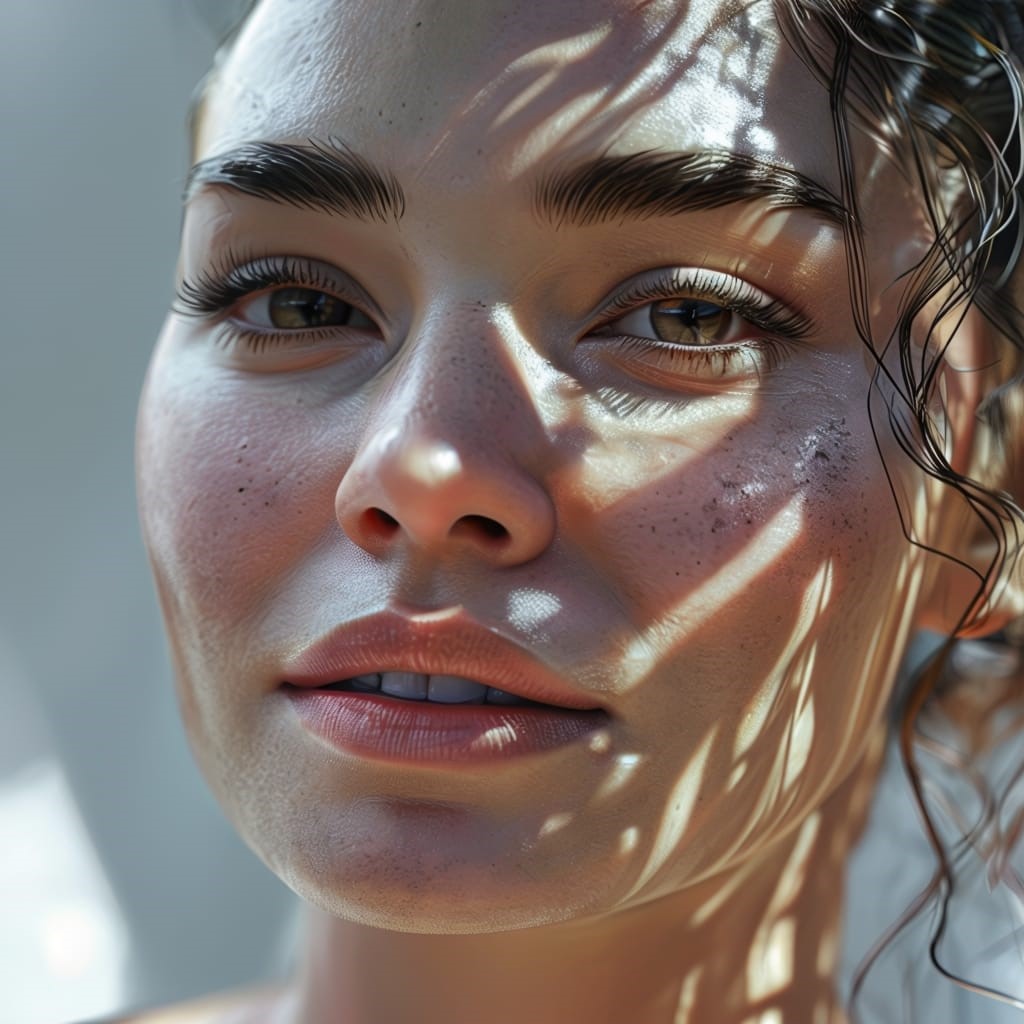In recent years, the beauty and skincare industry has seen a significant shift towards natural and plant-based ingredients. As consumers become more educated about what they put on their skin, they are increasingly seeking alternatives to synthetic or harsh chemicals. Retinol, long hailed as a miracle ingredient for anti-aging, acne treatment, and overall skin rejuvenation, has come under scrutiny due to its potential side effects like irritation, redness, and sensitivity. Enter Bakuchiol The Natural Retinol Alternative Transforming Skincare that promises the same benefits as retinol but with fewer downsides. In this article, we’ll explore bakuchiol in detail, examine its properties, and understand why it is being called a game-changer in the world of skincare.
Table of Contents
What is Bakuchiol?
Bakuchiol is a naturally occurring compound extracted from the seeds and leaves of the Psoralea corylifolia plant, commonly known as the babchi plant. This plant has been used in traditional Indian and Chinese medicine for centuries, particularly for its healing properties and to treat skin conditions such as psoriasis and eczema.
While bakuchiol has been used in Ayurvedic and Chinese medicine for many years, it only recently gained attention in the Western skincare world, largely due to its similarities to retinol. First isolated in 1966, bakuchiol was discovered to have antioxidant, anti-inflammatory, and antimicrobial properties. However, it wasn’t until much later that its potential as a skincare powerhouse was realized.
Unlike retinol, bakuchiol is a natural antioxidant and has been shown to have no structural resemblance to retinoids, yet it delivers many of the same results as retinol when it comes to improving the appearance of fine lines, wrinkles, skin texture, and tone. This makes bakuchiol one of the most exciting finds in recent skincare history.

Bakuchiol The Natural Retinol Alternative Transforming Skincare
The Rise of Retinol in Skincare
To fully understand the significance of bakuchiol, it’s important to first understand the role that retinol has played in the skincare industry. Retinol is a derivative of vitamin A and has been used in skincare for decades, primarily for its ability to accelerate cellular turnover. This means it helps skin shed dead cells more quickly, revealing fresher, younger-looking skin beneath.
Retinol is also known for its ability to stimulate collagen production, which helps reduce the appearance of fine lines and wrinkles. Furthermore, it has been a go-to treatment for acne-prone skin due to its ability to unclog pores and reduce breakouts. Therefore, it’s no surprise that retinol has become a staple ingredient in many anti-aging and acne treatments.
However, while retinol is effective, it’s not without its drawbacks. Many users report experiencing side effects such as redness, peeling, dryness, and increased sensitivity to the sun. These potential issues have led many people to search for a gentler alternative that doesn’t compromise on results.
How Bakuchiol The Natural Retinol Alternative Transforming Skincare
Bakuchiol The Natural Retinol Alternative Transforming Skincare offers a gentler approach to skincare without sacrificing efficacy. Despite the fact that bakuchiol and retinol have different chemical structures, they function similarly in terms of how they benefit the skin. Both bakuchiol and retinol stimulate collagen production, which is essential for maintaining skin firmness and elasticity. Both also work to reduce hyperpigmentation, improve skin tone, and smooth out fine lines and wrinkles.
What makes bakuchiol particularly appealing is that it achieves these results with minimal irritation. Studies have shown that bakuchiol is much gentler on the skin compared to retinol, making it suitable for those with sensitive skin or those who cannot tolerate the harsh effects of retinol.
In a 2018 study published in the British Journal of Dermatology, researchers compared the effects of bakuchiol and retinol in a randomized, double-blind study. The results were striking: both bakuchiol and retinol significantly reduced wrinkles and hyperpigmentation, but Bakuchiol The Natural Retinol Alternative Transforming Skincare was better tolerated by participants, with fewer reports of dryness, stinging, and peeling. This study solidified bakuchiol’s reputation as a viable alternative to retinol, particularly for individuals with sensitive skin.
Benefits of Bakuchiol for the Skin
1. Anti-Aging Properties
Bakuchiol’s most touted benefit is its ability to reduce the appearance of fine lines and wrinkles. Like retinol, Bakuchiol The Natural Retinol Alternative Transforming Skincare stimulates collagen production, which is essential for keeping the skin firm and elastic. Over time, the skin naturally loses collagen, leading to sagging and the formation of wrinkles. By encouraging collagen synthesis, Bakuchiol The Natural Retinol Alternative Transforming Skincare helps to counteract these effects.
Additionally, Bakuchiol The Natural Retinol Alternative Transforming Skincare is rich in antioxidants, which protect the skin from oxidative stress caused by free radicals—unstable molecules that can damage skin cells and contribute to premature aging. By neutralizing free radicals, bakuchiol helps to prevent the breakdown of collagen and other vital skin structures, keeping skin youthful and resilient.
2. Improves Skin Texture and Tone
Bakuchiol’s ability to promote cellular turnover means it can help improve the overall texture and tone of the skin. Regular use of bakuchiol can lead to a smoother complexion with fewer rough patches and a more even skin tone. This makes it an excellent option for those dealing with hyperpigmentation, sunspots, or acne scars.
Furthermore, bakuchiol has been shown to inhibit the production of melanin, the pigment responsible for dark spots and uneven skin tone. This makes it an effective treatment for hyperpigmentation and helps to brighten the complexion over time.
3. Gentler on the Skin
One of the most significant advantages of bakuchiol is its gentle nature. While retinol is effective, it can also be harsh, particularly for those with sensitive skin. Retinol can cause irritation, redness, and peeling, especially during the initial “retinization” period when the skin is adjusting to the treatment.
Bakuchiol, on the other hand, does not cause these adverse effects. It is much more tolerable and can be used by individuals with sensitive skin, rosacea, or eczema. This makes bakuchiol an attractive option for those who want to reap the benefits of retinol without the associated irritation.
4. Antibacterial and Anti-Inflammatory Properties
In addition to its anti-aging benefits of Bakuchiol The Natural Retinol Alternative Transforming Skincare, it has antibacterial and anti-inflammatory properties, making it a great option for those with acne-prone skin. It helps to reduce inflammation, calm redness, and prevent bacterial growth that can lead to breakouts.
Bakuchiol’s ability to unclog pores and keep them clear is similar to retinol, but without the drying effects. This makes it particularly beneficial for individuals who struggle with acne but cannot tolerate stronger treatments that may exacerbate dryness or irritation.
5. Antioxidant Protection
Bakuchiol is also a potent antioxidant. This means it helps to protect the skin from environmental stressors like pollution and ultraviolet (UV) radiation, both of which can accelerate the aging process. By neutralizing free radicals, Bakuchiol The Natural Retinol Alternative Transforming Skincare helps to prevent the breakdown of collagen and elastin, two proteins that are essential for maintaining skin’s strength and elasticity.
6. Suitable for Day and Night Use
Unlike retinol, which can increase the skin’s sensitivity to sunlight, bakuchiol does not cause photosensitivity. This means that bakuchiol can be used during the day without increasing the risk of sun damage. In fact, bakuchiol’s antioxidant properties can even provide some protection against the harmful effects of UV rays when used in conjunction with sunscreen.
This versatility makes bakuchiol an attractive option for those who prefer a minimalist skincare routine, as it can be used both in the morning and at night without the need for additional precautions.
Bakuchiol vs. Retinol: A Side-by-Side Comparison
While both bakuchiol and retinol offer similar benefits for the skin, they differ in several key ways:
| Feature | Bakuchiol | Retinol |
|---|---|---|
| Origin | Derived from the babchi plant (natural) | Derived from vitamin A (synthetic) |
| Skin Irritation | Generally well-tolerated, even by sensitive skin | Can cause irritation, redness, and dryness |
| Photosensitivity | Does not cause photosensitivity | Increases sensitivity to sunlight |
| Use | Can be used day and night | Best used at night |
| Anti-Aging | Stimulates collagen production, reduces wrinkles | Stimulates collagen production, reduces wrinkles |
| Acne Treatment | Antibacterial and anti-inflammatory properties | Helps unclog pores and reduce breakouts |
As the table illustrates, bakuchiol offers many of the same benefits as retinol but with fewer downsides. Its natural origin and gentle nature make it a more appealing option for many individuals, particularly those with sensitive skin or those who prefer a more natural approach to skincare.
How to Incorporate Bakuchiol into Your Skincare Routine
If you’re considering adding Bakuchiol The Natural Retinol Alternative Transforming Skincare to your skincare routine, there are a few things to keep in mind. First, because bakuchiol is gentle, it can be used daily, both in the morning and evening. Unlike retinol, which must be gradually introduced to avoid irritation, bakuchiol does not require a “breaking-in” period.
To get the most out of bakuchiol, it’s best to apply it after cleansing and toning but before moisturizing. Like with any active ingredient, consistency is key, and regular use is necessary to see results. Most users begin to notice improvements in their skin after four to six weeks of consistent use.
Bakuchiol is also compatible with other skincare ingredients. It can be safely used alongside vitamin C, hyaluronic acid, peptides, and other hydrating ingredients. Additionally, because it doesn’t cause photosensitivity, bakuchiol can be layered under sunscreen during the day for added protection against environmental damage.
Who Should Use Bakuchiol?
Bakuchiol The Natural Retinol Alternative is suitable for a wide range of skin types and concerns. It’s particularly beneficial for:
- Sensitive Skin: Bakuchiol’s gentle nature makes it an excellent option for those with sensitive skin who cannot tolerate retinol.
- Anti-Aging: If you’re looking to reduce the appearance of fine lines and wrinkles without risking irritation, bakuchiol is a fantastic alternative.
- Acne-Prone Skin: Bakuchiol’s antibacterial and anti-inflammatory properties make it effective for treating acne while being less harsh than traditional acne treatments.
- Hyperpigmentation: Those with uneven skin tone or dark spots can benefit from bakuchiol’s ability to reduce melanin production and brighten the complexion.
Conclusion
Bakuchiol The Natural Retinol Alternative Transforming Skincare has rapidly become one of the most talked-about ingredients in the skincare world, and it’s easy to see why. Offering many of the same benefits as retinol—such as reducing wrinkles, improving skin texture, and treating acne—bakuchiol provides a gentler, plant-based alternative that is suitable for a wide range of skin types. With fewer side effects and the added bonus of being safe for daytime use, bakuchiol is set to become a staple in the beauty routines of those seeking effective, natural skincare solutions.
As more research continues to emerge, bakuchiol’s potential as a transformative skincare ingredient will only grow, solidifying its place as a powerful alternative to retinol. Whether you’re new to anti-aging treatments or looking to switch from retinol due to irritation, bakuchiol offers a promising, natural solution for achieving radiant, youthful skin.

